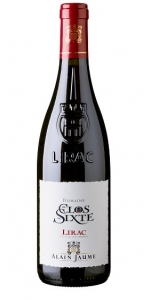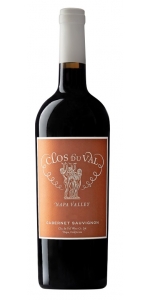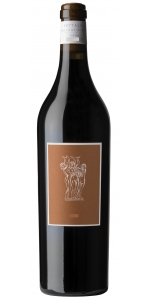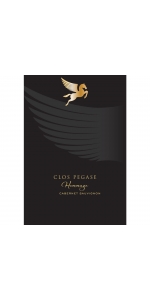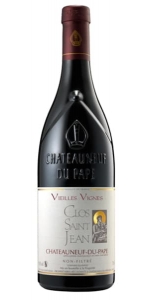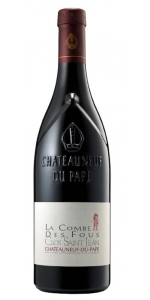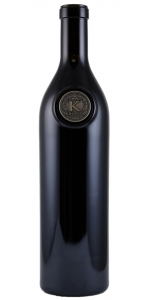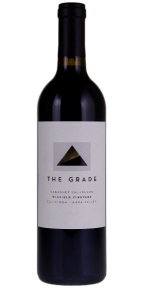Clos Solene Harmonie 2017
| Country: | United States |
| Regions: | California California (Paso Robles) |
| Winery: | Clos Solene |
| Grape Type: | Grenache |
| Vintage: | 2017 |
| Bottle Size: | 750 ml |
Alain Jaume Domaine du Clos de Sixte Lirac is made from 50% Grenache, 35% Syrah, 15% Mourvedre
An intense red garnet color. On the nose, aromas of red and black ripe fruit (kirsch and wild blackberry). The mouth is full, with aromas of blackcurrant liqueur and spice. Tannins are both harmonious and elegant thanks to the fleshiness of the wine. Hints of licorice and vanilla on the finish, which gives the wine length and complexity.
Soil type LIRAC vineyard is facing Chateauneuf du Pape, opposite side of the Rhône river. As showed by the picture and following geologist George Truc, soils are almost similar in both side. They are marked by the violence wrought by the Rhone river. It consists of a layer of marine molasses of the Miocene period covered by alpine alluvium. The presence of a great number of rounded stones known as "galets" in the earth is evidence of the time when the Rhone, then a torrent, tore fragments of rock from the Alps and deposited them on the plain. LIRAC is one of the up-coming best area from the southern Rhône valley, as it delivers outstanding wines. Winemaking & ageing Traditional wine-making in stainless still vats. Hand sorted bunches, crushed and destemmed grapes. Fermentation temperature : 30°C. 18 days of vatting with pigeages.
Review:
"The Lirac from this estate is the 2017 Lirac Clos de Sixte. It's another deep purple-colored effort offering powerful notes of ripe black cherries, melted licorice, violets, and pepper. Full-bodied, forward, ripe, and flamboyantly styled, it's packed with fruit and texture. Drink it over the coming 4-6 years."
- Jeb Dunnuck (August16th 2019), 92 pts
"Juicy and compact still, with concentrated plum and black currant paste flavors coated with licorice and backed by a roasted alder spine. Lingering bay and menthol hints too. Drink now through 2026. 3,000 cases made, 1,800 cases imported. - JM"
- Wine Spectator (October 2021), 91 pts
"There’s no missing the huge black-fruit character of this full-bodied but well-balanced Lirac. Excellent integration of tannins, fruit and alcohol, Touches of tar, licorice and Mediterranean herbs add interest, particularly at the supple finish. From organically grown grapes. Drink or hold."
- James Suckling (February 2022), 92 pts
Clos du Val Estate Cabernet Sauvignon is made from 6% Cabernet Sauvignon, 7% Merlot, 5% Malbec and 1% each Cabernet Franc and Petit Verdot.
This fresh and vibrant Napa Valley Cabernet Sauvignon is brimming with aromas of blackberry, mulberry, cassis, and violet. On the palate, bright flavors of cranberry, red plum, cherry, and lavender are intertwined with supple tannins, balanced acidity, and a long, smooth finish.
Review:
"Sleek tannins, guided by sweet earth, slate, purple plum and black olive. Savory notes of fig, toasted cedar, and black tea meld with blackberries. Well structured and impeccably balanced."
-Tasting Panel 96 Points
Clos Du Val Yettalil is a Bordeaux blend of Cabernet Sauvignon with Merlot, Cabernet Franc, Petit Verdot and Malbec
The 2019 Yettalil opens with aromas of fresh blackberry, ripe plum, and racy cassis layered with hints of violet, bay leaf, and thyme. Beautifully balanced and elegant on the palate, vibrant acidity and polished tannins give way to a concentrated core of black cherry, vanilla, and cedar. The texture is velvety and plush with a backbone of graphite and dark chocolate that lingers through a long finish.
Review:
The 2019 Yettalil is a blend of Cabernet Sauvignon, Merlot, Cabernet Franc, Petit Verdot, and Malbec. Deep garnet-purple in color, it charges out with energetic notes of crushed black and red currants, warm black plums, and black raspberries, plus suggestions of cedar, violets, and Indian spice with a waft of tree bark. The medium to full-bodied palate is lively and well-structured, featuring firm, ripe tannins to frame the muscular fruits, finishing on a lingering fragrant earth note.
-Wine Independent 95 Points
Dark an brooding in the glass, our 2019 Hommage Cabernet Sauvignon is bursting with ripe plums, black cherries and notes of cassis. On the palate the black fruits linger and mix with a hint of crushed cassia bark and toasted oak and are surrounded by strong, balanced tannins and notes of espresso and dark chocolate. This wine is bold and sensuous with a silky texture and lengthy finish.
Our Tenma Vineyard is located in the foothills of Mount St. Helena northeast of the town of Calistoga. These 40 acres of rugged land are part of an alluvial fan spilling out from the Palisades Mountains in the northeast corner of the Napa Valley. The rocky terrain here is well-drained with a very sparse topsoil which is a perfect combination for growing world-class Cabernet Sauvignon when combined with the climate of Napa Valley. The low grape yields of these old vines result in highly concentrated wines with an elegance and complexity rarely seen, even within the famous Napa Valley. These grapes have proven to be a worthy backbone for our flagship Hommage Cabernet Sauvignon and are the reason that wine has become the pinnacle of Clos Pegase.
To craft a Flagship wine, highlighting our top Cabernet Sauvignon vineyards blocks and world class winemaking to craft a wine of balance, complexity and character.
Clos Saint-Jean Chateauneuf Du Pape Vieilles Vignes is made from a Grenache, Syrah, Mourvedre, Cinsault, Vaccarèse and Muscardin, the Châteauneuf-du-Pape Vieilles Vignes is made from old vines located in and around Le Crau. The Grenache is aged in concrete for 12 months while the remainder is aged in demi-muid.
Review:
This has good concentration and energy to the dense core of dark fruit and bitter cherry, with great poise and elegance despite its ripeness (an impressive feat for the vintage). Guided by finely crushed mineral accents and tannins, this reveals pretty high-toned floral notes and leafy tobacco. Grenache, Syrah, Mourvedre, Cinsault, Vaccarese and Muscardin. Drink now through 2032. 900 cases made.
-Wine Spectator 95 Points
Clos Saint-Jean is a 41-hectare estate in Châteauneuf-du-Pape run by brothers Vincent and Pascal Maurel. Considered by many critics and wine-writers as the preeminent estate espousing the modern style of winemaking in Châteauneuf, this cellar is one of the oldest in the region, having been founded in 1900 by the greatgreat-grandfather of Vincent and Pascal, Edmund Tacussel. A short time after its founding and well before the AOP of Chateauneuf-du-Pape was created in 1923, Edmund began bottling estate wines in 1910.
The farming at Clos Saint-Jean is fully sustainable due to the warm and dry climate, which prevents the need for chemical inputs. Instead, Vincent and Pascal employ organic methods for pest control, mainly pheromones, to prevent pests from taking up residence in their vines, a process called amusingly enough in French, confusion sexuelle. The vines tended manually, and harvest is conducted in several passes entirely by hand.
Combe des Fous literally means, the hill of the fool. The hill, in this case, is located in the far southern reach of Le Crau which was left barren for many centuries because the layer of galets was so exceedingly deep that everyone assumed vines could never survive there. The fool in this situation is Edmund Tacussel, the great-great-grandfather of Vincent and Pascal Maruel who planted a Grenache vineyard on this site in 1905. That old-vine Grenache form the heart of this cuvée with a small amount of Syrah, Cinsault and Vaccarèse. La Combe des Fous is only made in the best vintages.
Review:
Pumps out heady raspberry, mulberry and blackberry compote notes that keep form and direction, thanks to a roasted apple wood spine and flanking ganache, garrigue and warm earth notes. Seriously grippy finish. Grenache, Syrah, Cinsault and Vaccarèse.
-Wine Spectator 96 Points
The 2020 Châteauneuf Du Pape La Combe Des Fous is a normal blend of 70% Grenache, 20% Syrah, and the rest Vaccarèse and Cinsault. Beautiful, full-bodied aromas and flavors of ripe black raspberries, violets, ground pepper, lavender, and herbes de Provence all emerge from this gorgeous barrel sample, and it shows the pure, fresh, yet still concentrated style of the vintage brilliantly.
-Jeb Dunnuck 94-97 Points
Clos Solene Harmonie is made from Paso Robles 67% Grenache, 18% Mourvèdre and 15% Syrah
Composed of 5 of the best vineyards on the west side of Paso Robles with mainly limestone and shale terroirs, brought elegance and pureness to this vintage. Aged for 16 months in larger used barrels, it delivers, on the nose, an incredible bouquet, and on the palate, notes of strawberries followed by some silkiness texture with delicate tannins and a great acidity.
Aged 16 months in mostly used puncheons 400-liter barrels (15% new)
Pairs with roasted pork. Eggplant parmesan, filet mignon
Review:
"The 2017 Harmonie (67% Grenache, 18% Mourvèdre, and 15% Syrah) is beautiful and certainly makes the most of the vintage. Black cherries, red currants, cedary spice, dried herbs, and floral notes all flow to a medium to full-bodied blend that has flawless balance, ultra-fine tannins, no hard edges, and a great finish. It can be drunk today or cellared for over a decade."
- Jeb DUNNUCK (October 31st 2019), 97 pts
Born and raised in the Southeast of France, Guillaume comes from a family of grape growers and winemakers. After 24 years in Narbonne, he moved to Bordeaux. Both regions famous for their wines are also very different from each other. It requires some grape growing and winemaking experience to switch from one to the other, such as different climates, soil types, vine illnesses and more. But life is full of surprises. Not convinced he wanted to make wine in Bordeaux, he took a harvest internship at L’Aventure in Paso Robles. The same bolt of lighting that he felt for Solène, struck again. He fell in love with the soil and terroir of Paso Robles. What was supposed to be a 3-month harvest internship, turned into 6 months, and he was offered the position of Assistant Winemaker. While working for L’Aventure, he worked day and night on his own project - to launch his very own brand. In 2007, Clos Solène was born.
When Guillaume and Solène acquired the estate in January of 2017, the existing vineyard was planted in 1998 onto vigorous rootstock. The rows were planted a little wider than Guillaume would have planted, but he felt that it was a great place to start, especially having 20-year-old vines in place, which is considered “old vines” for this area. After testing to make sure the vines were clean of any and all viruses, Guillaume decided to re-graft the whole 8 acres and turn the plot into a nursery for future planting.
Robert Parker on Clos Solene:
"Clos Solène was founded in 2007 by Guillaume and Solène Fabre. At present, they make about 2,500 cases a year but have recently purchased their own estate and hope to grow the brand to around 4,000 cases. Guillaume, a native of the Languedoc-Roussillon in France, has begun planting rootstocks and grafting over vines and is experimenting with Côte-Rôtie-style training for his Syrah vines. Currently, most of the fruit is purchased, but the pair hopes to dial back to only 30% purchased fruit as their own vines come online. Guillaume says he wants his wines to have “a common denominator of elegance and perfume,” and indeed the wines are much more restrained than is usual for Paso. 2017 with its heat spikes was especially challenging here. “It was 105 degrees for two straight weeks,” Guillaume recalls. “We picked a bit earlier, used less new oak, less stems and less extraction. We did triage picks and then sorted very heavily. We lost about 30% to 40% of production on the sorting table because we let go of anything impacted by that heat. - Erin BROOKS"
- Robert Parker's Wine Advocate (February 2020)
Kinsella Estates Heirloom Cabernet Sauvignon is made from 100% Cabernet Sauvignon
20 months in French Oak (75% New)
Organic made.
Intense was the first word that came to mind. Purely focused tannin weaves its way through the core of this wine. Has a savory characteristic that we have found in past vintages (2014 to be specific) with a slight licorice note on the exceptionally long finish. While this vineyard has been described as “feminine” in the past, that is certainly not the case for this bigger, bolder vintage!
The Grade Napa Cabernet Sauvignon Winfield Vineyard is made from Napa Valley Cabernet Sauvignon.
“2016 produced wines that are very giving, round, coating and streamlined. Year after this year, this bottling aims to highlight the best attributes of the Winfield Vineyard, and also creates a wine that possesses qualities that allow it to age well in the cellar and evolve over many years.
“This wine expresses a focused balancing act of dark, rich black fruit, and a fine tannin structure, illuminated through the core with a laser-like acidity. The wine displays a deep purple-red hue with a cranberry halo. Aromas of cassis, cinnamon, citrus oil, roasted meat, and lilac swell from the glass.
“The palate is marked by a wave of jet-black brambly fruit up front, followed by an exotic spice mid-palate and a long, complex finish that lasts and lasts expressing notes of flowering jasmine, and oolong tea. The silky tannins hold everything together and will certainly allow this wine to evolve in the cellar for at least 7-10 years.” - Thomas River Brown
Review:
Coming from the Winfield Vineyard in Calistoga, the 2016 Cabernet Sauvignon is another brilliant wine from the hands of winemaker Thomas Rivers Brown. This deep purple-colored effort boasts tons of blueberry and jammy blackberry fruits as well a medium to full-bodied, concentrated, yet elegant style on the palate. It has the purity of fruit that’s the hallmark of the vintage, ripe, sweet tannins, and no hard edges, and is already hard to resist.
-Jeb Dunnuck 94 Points
- back
The Grace of the Land
For our 2018 Napa Valley Quilt Reserve, we tasted the developing wine throughout the fermentation and aging processes, then set aside the very best 2% for this reserve bottling. Our lot selection was based on intensity, complexity and boldness of expression that could withstand a longer aging cycle and heavier use of new French oak.
Tasting Notes
Deep Ruby Red in color with aromas of black currant, bright cherry, toffee, blackberry, marionberry pie and notes of dark chocolate. Rich and satisfying on the palate with flavors of boysenberry jam, black cherry pie filling, and cocoa layered with notes of vanilla and hazelnut. A full-bodied Cabernet with layers of concentrated black fruit, bright acidity and excellent balance. A long, velvety and satisfying finish, enjoy this stellar vintage now and for years to come!
Powerful and rich tasting, this wine from Joseph Wagner is velvety in texture and spicy in aroma. It drips with jammy Port like flavors that are backed by fine-grained tannins that tightened a bit on the finish for a good grip. Best from 2025.
-Tasting Panel 97 Points
This Pinot Grigio is grown at the foot of the remains of what was once the stunning villa of the della Scala family, one of the most influencial families in Verona from the early 1200's to the late 1300's. The much admired ruler of Verona, Cangrande I della Scala, summered at this villa. Cangrande I was a great warrior, diplomatic prince and an important patron of the arts. He championed the works of Dante, Patrarch and Giotto. He created beautiful architecture throughout the city in the ornate, gothic style of his time. This label is a reproduction of the design taken from a fragment of the ornate and intricate art that once covered the ceilings of the villa. In Italian, Ornato means ornate or adorned. This label celebrates the beautiful, complex taste of the Della Scala family and the Gothic art of that period.
Color: Brilliant straw colored wine with golden reflections.
Bouquet: Fresh and floral bouquet with a hint of pears, apricots and bananas blended with the intense aroma of acacia flowers.
Taste: Fresh and inviting with bright fruit and an easy drinking style with a pleasing hint of almonds in the aftertaste.
Vineyard: Rich in limestone the soil is of alluvial origin. The vineyards are located in the province of Verona. The agricultre is sustainable. No chemical fertilizers, herbicides or pesticides are used. The vineyards are South facing at 300 meters above sea level.
Harvest: September – by hand. The grapes are picked as they ripen to keep the acidity high. The grapes are brought to the cellar and refrigerated within a half hour of picking to keep oxidation to a minimum.
The grapes are soft pressed and the juice is placed in stainless steel along with the skins for a brief maceration of 12 hours at 8-10° C. The must is then racked and lightly filtered. Fermentation then takes place with selected indigenous yeast under controlled temperatures. Of 16-18°C. The fermentation is slow and cool to emhance the natural aromas of the grapes. The finished wine is placed in stainless steel holding tanks until bottled.
Aging: 3-4 months in stainless steel.
Alcohol: 12%
Acidity: 5.30
Seafood dishes, risottos with scampi, spaghetti with clams, sole in white wine.



